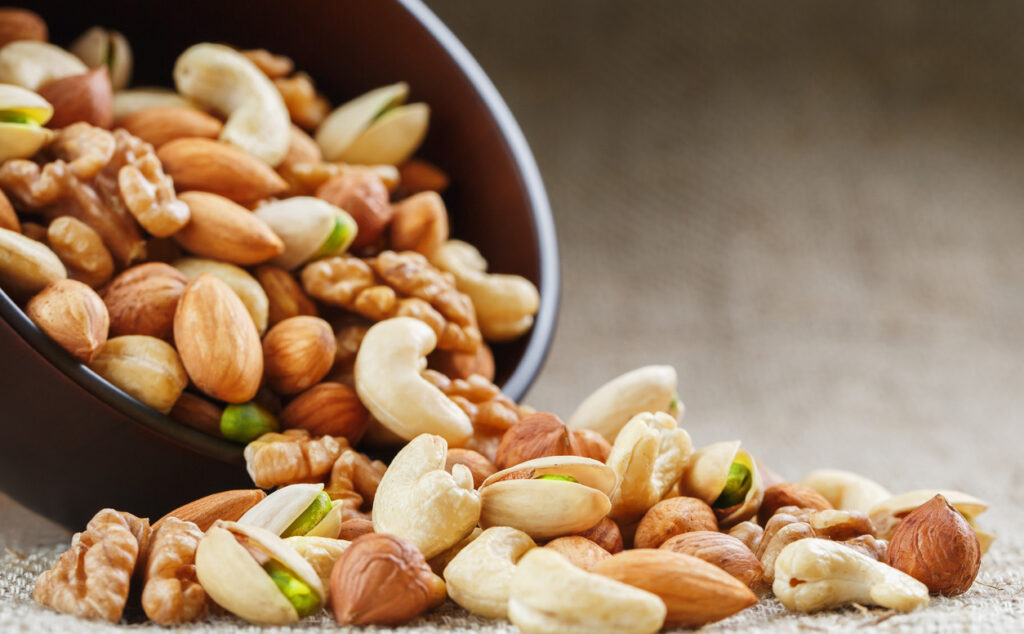From the breakfast table to the dinner plate…
We are often unaware of the everyday addictive food we choose to eat.
A lot of these are familiar staples and as comforting as they are customary. But beneath the surface of these everyday foods lies a complex interplay of nutrition and health impacts that often go unnoticed.

In today’s exploration, we look into the world of common foods.
While these items form the backbone of many diets, their hidden qualities — both beneficial and detrimental — can significantly influence our health and well-being.
Join us as we unravel the intricate tapestry of good versus bad in these foods, offering you a fresh perspective on what fills your plate.
Some of these everyday addictive food choices may seem benign, but are they?
- Cheese: Contains casein, which releases opiates called casomorphins during digestion, potentially triggering the brain’s pleasure centers.
- Sugar: Found in many non-junk foods like yogurt, sauces, and bread. Sugar can stimulate the brain similarly to certain drugs, leading to cravings.
- Salt: Present in various foods like cheese, bread, and canned vegetables. Salt can stimulate appetite and cravings, leading to overconsumption.
- Coffee: The caffeine in coffee is well-known for its addictive qualities, and it’s often consumed in various forms, not just as a beverage.
- Nuts: High in fats and can be moreish, leading to excessive consumption.
- Dried Fruit: Often high in sugar and can be easy to overeat.
- Fruit Juice: High in natural sugars and can be addictive, especially without the fiber found in whole fruits to moderate blood sugar levels.
- Pasta and Bread: High in carbohydrates, which can cause blood sugar spikes and subsequent cravings.
These foods, while not typically classified as junk food, can still be addictive due to their components like sugar, salt, fats, or caffeine. Moderation is key in consuming these items, especially for individuals sensitive to their effects.
Everyday Addictive Food #1: Cheese

Cheese, my favorite, is a popular and versatile dairy product, and an everyday addictive food that has both beneficial and potentially negative aspects to consider:
Benefits of Eating Cheese:
- Nutrient-Rich: Cheese is a great source of essential nutrients like calcium, protein, phosphorus, zinc, vitamin A, and vitamin B12. These nutrients are important for bone health, muscle function, and overall bodily functions.
- Bone Health: High in calcium and protein, cheese can contribute to strong bones and teeth, which is particularly beneficial in preventing osteoporosis.
- Muscle Building and Maintenance: The protein content in cheese makes it beneficial for muscle building and maintenance, which is important for overall health and aging.
- Satiety and Weight Management: Cheese is high in protein and fat, which can contribute to feelings of fullness. This can potentially help with weight management by reducing overall calorie intake.
- Dental Health: Some studies suggest that cheese can help prevent tooth decay. This is due to its high calcium and phosphate content and its ability to balance the pH level in the mouth.
Potential Downsides of Eating Cheese:
- High in Saturated Fats: Many types of cheese are high in saturated fats. This can contribute to high cholesterol levels and increase the risk of heart disease when consumed in excess.
- High in Sodium: Some cheeses are very high in sodium. This can be problematic for individuals with hypertension or those looking to reduce sodium intake.
- Lactose Intolerance: Individuals who are lactose intolerant may have difficulty digesting cheese, leading to gastrointestinal discomfort.
- Calorie-Dense: Cheese can be very calorie-dense, making it easy to consume more calories than intended, which can contribute to weight gain.
- Allergies: Some people may be allergic to specific proteins found in milk and cheese.
- Processed Varieties: Highly processed cheeses may contain fewer nutrients and more additives, making them a less healthy choice.
The key to incorporating cheese into a healthy diet is moderation and variety. Opting for lower-fat and lower-sodium varieties, and balancing cheese consumption with other nutrient-rich foods, can help maximize its benefits while minimizing potential health risks.
2. Sugar

Most likely you already know about some of these everyday addictive foods.
But let’s continue looking at the good, the bad and the tasty…
When it comes to sugar, particularly added sugars found in many foods and beverages, there’s also a set of good and bad aspects to consider.
Potentially Positive Aspects of Sugar:
- Energy Source: Sugar is a simple carbohydrate that provides an immediate source of energy. Glucose, a form of sugar, is the primary energy source for the brain and muscles during intense activities.
- Flavor Enhancer: Sugar improves the taste of many foods, making them more palatable and enjoyable.
- Preservative: In some foods, sugar acts as a preservative, extending shelf life. This is common in products like jams, jellies, and some canned fruits.
- Fermentation: Sugar is essential in the fermentation process for making products like bread, yogurt, and alcoholic beverages.
Negative Aspects of Consuming Sugar:
- No Essential Nutrients: Sugar provides calories without essential nutrients (empty calories). This can contribute to nutrient deficiencies if it displaces more nutritious foods in the diet.
- Weight Gain: High sugar intake is linked to weight gain and obesity due to its high calorie content and potential to reduce satiety.
- Blood Sugar Spikes: Consuming a lot of sugar, especially on an empty stomach, can lead to blood sugar spikes and crashes. This may lead to energy fluctuations and hunger.
- Dental Health: Sugar is a major contributor to dental problems like tooth decay and gum disease, as it feeds harmful bacteria in the mouth.
- Increased Risk of Chronic Diseases: Excessive sugar consumption is associated with an increased risk of chronic diseases, including type 2 diabetes, heart disease, and certain cancers.
- Addictive Qualities: Sugar can trigger the release of dopamine in the brain, similar to addictive drugs. For example, too much sugar can potentially lead to stronger cravings and overconsumption.
- Impact on Skin Health: Some studies suggest a link between high sugar consumption and skin aging, as well as conditions like acne.
- Impaired Brain Function: Excessive sugar intake may impair cognitive functions and has been linked to a higher risk of depression and dementia.
In conclusion, while sugar can enhance the flavor of foods and provide quick energy, its excessive consumption is linked to numerous health issues.
The key is moderation and being mindful of hidden sugars in processed foods.
Certainly the natural sugars found in fruits and whole foods is not the point here. In short, limiting the intake of added sugars, can help mitigate the negative impacts of sugar consumption.
3. Salt

Salt, specifically sodium chloride, is a crucial ingredient in many diets worldwide, but it has both beneficial and negative aspects:
Positive Aspects of Salt:
- Essential Nutrient: Sodium, a component of salt, is essential for nerve function, muscle contraction, and maintaining fluid balance in the body.
- Flavor Enhancer: Salt enhances the flavor of food, making it more palatable and enjoyable.
- Preservative: Historically, salt has been used to preserve foods like meat and fish, extending their shelf life by inhibiting the growth of bacteria.
- Electrolyte Balance: As an electrolyte, salt is crucial in maintaining the right balance of fluids in the body, which is essential for many physiological processes.
Negative Aspects of Excessive Salt Consumption:
- High Blood Pressure: Consuming too much salt can lead to high blood pressure (hypertension), a major risk factor for heart disease and stroke.
- Heart Disease and Stroke: High sodium intake is linked to an increased risk of cardiovascular diseases, including heart attack and stroke.
- Kidney Health: Excessive salt intake can put strain on the kidneys, impairing their ability to filter waste. This can lead to kidney stones and other kidney problems.
- Water Retention: High sodium levels can cause the body to retain water, leading to swelling and bloating.
- Osteoporosis: Some studies suggest that a high-salt diet may lead to a loss of calcium from bones, potentially increasing the risk of osteoporosis.
- Stomach Cancer: Some research has found a link between high salt intake and an increased risk of stomach cancer, possibly due to damage to the stomach lining.
- Obesity: While salt doesn’t contain calories, high salt intake is often associated with high-calorie, processed foods, contributing to obesity.
In summary, while salt is essential for many bodily functions, moderation is key.
The negative effects of salt are primarily associated with excessive consumption. Most health organizations recommend limiting salt intake to reduce the risk of hypertension and other health issues.
After that, opting for fresh, whole foods over processed foods can help control salt intake.
Before we move on with the everyday addictive food study, let’s take a look at the word addictive:
“Addiction” and “addictive behaviour” are polysemes (multiple related meanings) denoting a category of mental disorders, of neuropsychological symptoms, or of merely maladaptive / harmful habits and lifestyles. [Wikipedia]
4. Coffee

Coffee, one of the most popular beverages worldwide, has both positive and negative aspects to its consumption:
Positive Aspects of Coffee:
- Rich in Antioxidants: Coffee is high in antioxidants, which can help protect cells from damage and reduce inflammation.
- Enhanced Mental Alertness: The caffeine in coffee stimulates the central nervous system, improving focus, concentration, and energy levels.
- Lower Risk of Certain Diseases: Regular coffee consumption is linked to a lower risk of several diseases, including Parkinson’s disease, Alzheimer’s disease, type 2 diabetes, and certain types of cancer.
- Improved Physical Performance: Caffeine increases adrenaline levels and releases fatty acids from fat tissues, enhancing physical performance.
- Potential Liver Benefits: Studies suggest that coffee drinkers have a lower risk of liver diseases, including liver cancer and cirrhosis.
- Mood Improvement: Coffee consumption has been associated with a lower risk of depression and may reduce the risk of suicide.
Negative Aspects of Coffee:
- Insomnia and Restlessness: Excessive coffee consumption, especially late in the day, can interfere with sleep patterns, leading to insomnia and restlessness.
- Heart Issues in Some People: In some individuals, particularly those sensitive to caffeine, coffee can cause rapid heart rate (tachycardia) and elevated blood pressure.
- Digestive Issues: Coffee can stimulate acid production in the stomach, potentially leading to heartburn or gastroesophageal reflux disease (GERD) in susceptible individuals.
- Addiction and Withdrawal Symptoms: Regular intake of caffeine can lead to physical dependence, and sudden cessation may cause withdrawal symptoms like headache, fatigue, irritability, and depressed mood.
- Bone Health: High consumption of coffee can interfere with calcium absorption, potentially affecting bone density.
- Pregnancy Concerns: Pregnant women are often advised to limit their coffee intake due to potential associations with low birth weight and miscarriage.
- Anxiety: High doses of caffeine can exacerbate anxiety symptoms in sensitive individuals.
The key to enjoying coffee’s benefits while minimizing its drawbacks lies in moderation.
Most health experts suggest limiting coffee intake to about 3-4 cups per day.
In addition, it’s important to be mindful of what you add to your coffee, as sugar and creamers can add extra calories and diminish its health benefits.
5. Nuts

Yep! Everyday Addictive Food includes:
Nuts, widely recognized for their nutritional benefits, also have certain drawbacks to consider:
Positive Aspects of Nuts:
- Nutrient-Dense: Nuts are packed with essential nutrients, including healthy fats (mostly unsaturated), protein, vitamins (like vitamin E and B vitamins), minerals (such as magnesium, zinc, and selenium), and fiber.
- Heart Health: Regular consumption of nuts has been linked to a reduced risk of heart disease. They help in lowering bad LDL cholesterol and improving the health of the lining of your arteries.
- Weight Management: Despite being high in calories, nuts are satiating and can help in weight management. The protein and fiber in nuts can help you feel full longer, reducing overall calorie intake.
- Reduced Risk of Type 2 Diabetes: Nuts can help in maintaining stable blood sugar levels, which is beneficial in reducing the risk of type 2 diabetes.
- Anti-Inflammatory Properties: Nuts have anti-inflammatory properties that can benefit individuals suffering from inflammatory conditions like arthritis.
- Brain Health: Certain nuts, such as walnuts, are known for their brain health benefits, owing to their high omega-3 fatty acid content.
Negative Aspects of Nuts:
- High in Calories: Nuts are very calorie-dense, which can lead to weight gain if consumed in large quantities without mindful eating.
- Allergies: Nut allergies are common and can be severe, even life-threatening for some individuals.
- High in Phytates and Tannins: Nuts contain phytates and tannins, compounds that can reduce the body’s ability to absorb certain nutrients.
- Salted and Flavored Varieties: Many commercially available nuts are roasted with added salt or flavorings, which can add unnecessary sodium and other additives to the diet.
- Risk of Aflatoxins: Certain nuts, like peanuts, can be contaminated with aflatoxins, a type of mold that can be harmful in high amounts.
- Gastrointestinal Discomfort: Some people may experience bloating or digestive issues from eating nuts, especially in larger quantities.
In conclusion, nuts are a healthy addition to most diets when consumed in moderation. Opting for raw or dry-roasted varieties without added salts or sugars is generally healthier. For those with nut allergies, it’s essential to avoid them entirely and seek alternatives.
6. Dried Fruits

Dried fruits, like all foods, come with their own set of positive and negative aspects:
Positive Aspects of Dried Fruits:
- Nutrient-Rich: Dried fruits retain most of the nutrients of fresh fruits, including fiber, vitamins, and minerals. They are particularly rich in fiber and potassium.
- Antioxidants: Many dried fruits are high in antioxidants, which help reduce oxidative stress and may lower the risk of certain diseases.
- Convenience and Shelf Life: Dried fruits have a long shelf life and are portable, making them a convenient snack option.
- Energy-Dense: They provide a quick source of energy, making them a popular choice among athletes or for those needing a quick energy boost.
- Health Benefits: Regular consumption of dried fruits is associated with a lower risk of obesity, heart diseases, and some forms of cancer.
Negative Aspects of Dried Fruits:
- High in Sugar and Calories: Drying concentrates both the nutrients and sugars in fruit, making dried fruits very high in calories and sugar, including fructose.
- Risk of Overeating: Due to their small size and sweetness, it can be easy to consume too many dried fruits, leading to excessive calorie intake.
- Potential for Added Sugars and Preservatives: Some commercially prepared dried fruits are coated with added sugar or preservatives like sulfur dioxide, which can be harmful in excess and problematic for some individuals.
- Gastrointestinal Discomfort: The high fiber content, while generally beneficial, can cause bloating, gas, or digestive discomfort if consumed in large quantities.
- Tooth Decay: The sticky texture of dried fruits can adhere to teeth, and their high sugar content can contribute to tooth decay.
- Pesticide Residues: Unless organic, dried fruits may contain higher levels of pesticide residues compared to fresh fruits.
To maximize the benefits of dried fruits while minimizing the downsides, it’s advisable to consume them in moderation, choose varieties without added sugars or preservatives, and maintain good dental hygiene practices. They can be a healthy part of the diet when eaten as part of a balanced and varied diet.
7. Fruit Juices


